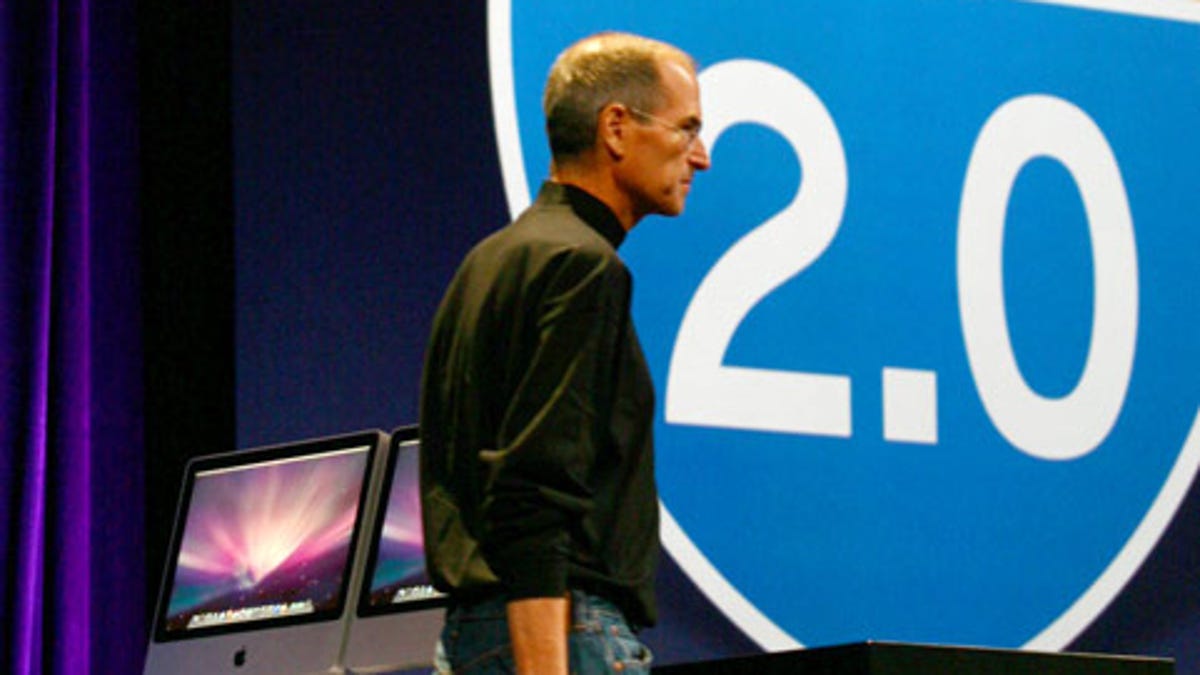Crossing the line on Steve Jobs' health
CEO health issues are serious business for corporate boards and shareholders. But that doesn't give writers license to make cancer diagnoses from the 12th row--or worse yet, a photo.

Anyone with a genuine ounce of concern for Steve Jobs' health should remember the golden rule of medicine: first, do no harm.
Presumably carrying the torch for concerned Apple investors, Henry Blodget of Silicon Alley Insider has apparently decided to make it his personal mission this summer to shame Apple into revealing whether or not Jobs' pancreatic cancer has returned, aided and abetted by timely "hedge fund sources" from The New York Post who claim that Jobs is scaring business associates with his appearance and this despicable throw-away thought from CNET Blog Network contributor Matt Asay suggesting--without a shred of evidence--that the launch issues with MobileMe and the iPhone 3G might be the result of poor oversight from Jobs due to his health.
Just for a moment, put aside the nonsensical notion that the day-to-day performance of a 20,000-person company is based entirely on the health of one man. Blodget and those openly speculating about Jobs' health offer no support for their viewpoint other than his appearance and the fact that he once had cancer.
There are indeed real issues for Apple to consider about Jobs' health and what constitutes material disclosure to investors. But they've been covered before: back in 2006 when the same rumors about Jobs' health made the rounds, and last year when an article in Fortune revealed that Apple waited nine months to disclose that Jobs had been diagnosed with cancer back in 2003.
To repeat, there is no universal standard for how companies are expected to disclose the health issues of their executive officers, the way there are standards for how companies are required to disclose material financial information.
Corporate-governance experts generally agree that a company's board of directors has the responsibility to determine whether the health of its CEO affecting his or her ability to run the company. Likewise, the CEO has a responsibility to be honest and up-front with the board of directors over the true state of their health.
Apple was forced to address the issue during Monday's conference call with a statement that will unfortunately do little to dampen the speculation. CFO Peter Oppenheimer read this statement during the call: "Steve loves Apple. He serves as CEO at the pleasure of the board, and he has no plans to leave Apple. Steve's health is a private matter."
That wasn't enough for Blodget, who argued, "from a shareholder perspective, the 'private matter' response is simply unacceptable." And later, in the comments attached to his post, he suggests: "I hate to be even more morbid, but I tend to agree with the assessment above: the 'private matter' statement makes it seem more likely that he's seriously sick."
Apparently, the absence of denial equals confirmation. So what would Blodget and those calling for full disclosure require to be satisfied?
Should Apple break out Jobs' white-blood cell count on the earnings statement next to the number of iPods sold in Japan? Should Apple have to put out an 8-K every time Jobs visits an oncologist for a checkup? Taken more broadly, should Microsoft have to release the results of Steve Ballmer's last physical because a shareholder points out that he's a bit overweight and a bit high-strung?
Blodget suggests that Jobs is "arguably Apple's single most valuable asset," and therefore, if that asset is impaired, the shareholders have a right to know. To be sure, we all know that Steve Jobs is far more actively involved with the design and development of Apple's products than the average CEO and that Apple probably wouldn't have made it back from the abyss of the mid-1990s without his leadership and foresight.
But Jobs is just a man. He's not a demigod sent to lead us down the path to technology enlightenment. He's not a finely crafted design arbitration widget. And he's not merely an "asset," as Blodget himself admits at the end of his latest post on the matter.
Steve Jobs has a family. He has kids. Those kids presumably have Macs in their home that connect to the Internet and allow them to read all this uninformed speculation about what is first and foremost a family matter.
One clear sign that this is an unseemly exercise: if those who keep pushing the issue feel they have to repeatedly apologize for seeming insensitive, they're probably being insensitive. Yes, Jobs is the CEO of a $135 billion company that has dramatically changed the world of technology and made countless people rich. And, as I wrote the last time we covered this, Apple's board of directors has a clear duty to avoid falling into a situation resembling Woodrow Wilson's final days in office.
However, the only responsibility that Apple's board of directors has to its shareholders is to make sure that Steve Jobs' health is not a liability, and disclosing anything beyond that would be a mistake. They don't have to get into the details, as BusinessWeek's Arik Hesseldahl suggests: just say they've talked it over with Steve, and if there's no reason to be concerned, say "there's no reason to be concerned."
This whole affair reminds me far too much of Star or US Weekly speculating about whether an actress is pregnant, or anorexic, or a drug addict, based on a picture. I'm sure that all those involved in those stories were genuinely concerned for Britney's health, too.